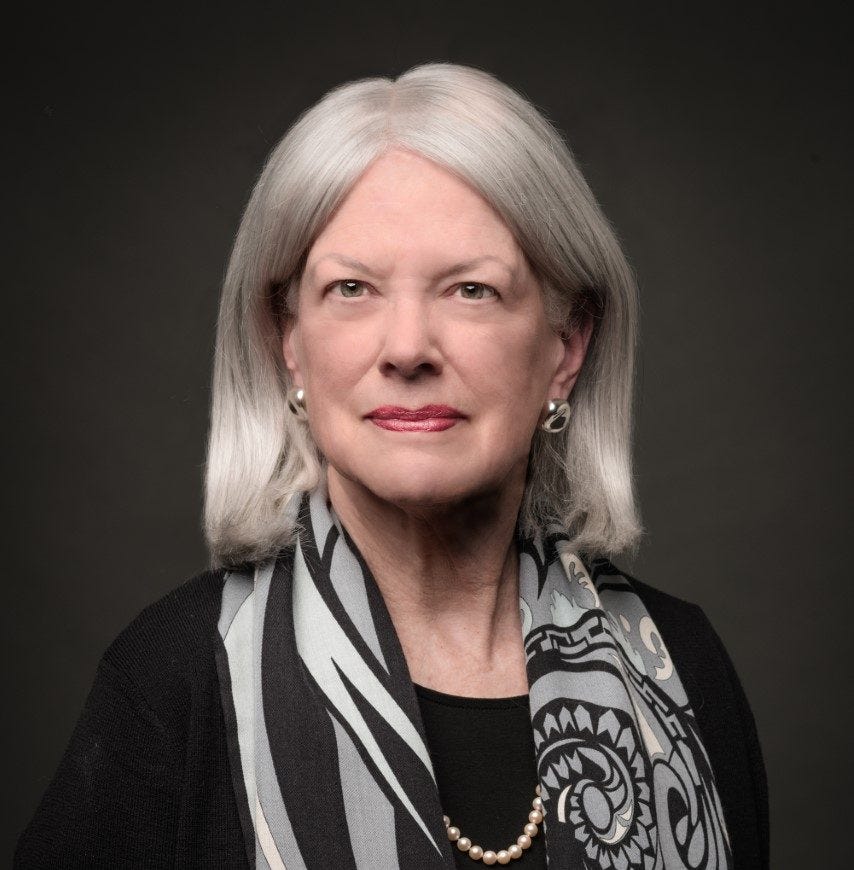Why Do We Pray?
Prayer is a way of participating in God's ongoing work in the world and aligning our will with God’s. It is a means of transformation and growth, both personally and communally, a means of grace.
I asked you (my loyal reader) what you wanted me to write about. The question was for two reasons. First, if I only write about what I am interested in, eventually, that will no longer be interesting. Second, from time to time, I get stumped, and when I get stumped, I stop writing. So, your questions will keep me writing.
Together, we’ll be curious and brew up some theology together.
This question comes from my dear friend Holly. Holly is one of those church people every pastor wants in their congregation. Holly asks good questions and doesn’t accept fluff or bullshit from the preacher. She also understands that pastors are real people.
Holly wrote, “I’m interested in prayer. Why bother? Is my dog really going to get well bc I pray?”
Short answer - prayer is how we communicate with God, seek God’s guidance, and express our gratitude to God. We bother to pray because God matters to us, and we matter to God. No, your dog may not get better because you prayed, sorry.

But prayer is much more than just talking to God. Prayer is a way for Christians to deepen their relationship with God and align their will with God’s. There are there three (or four theologians) I think will help us better understand prayer, as they help me better understand just about everything.
Rev. Will Willimon, a friend, mentor, and retired United Methodist Bishop, believes that prayer is not just a private activity but a public one as well. In his book, Pastor: The Theology and Practice of Ordained Ministry, Willimon writes, "Prayer is a public activity, for it involves the entire church, in all its variety, calling out to God” (Abingdon Press. 2002. Pg 128). Will is emphasizing the communal nature of prayer and the role it plays in binding the church together. This spans generations. Take the Psalms, for example. When we pray the Psalms, our prayers are added to the generations before us who prayed and lamented with those words.
I can’t talk about Willimon and prayer without including his colleague Dr. Stanley Hauerwas. Together they wrote Lord, Teach Us: The Lord's Prayer and the Christian Life.
Stanley doubles down on prayer as a communal practice and says that it is through praying together that Christians are able to deepen their relationship with God and with one another. In his book Hannah's Child: A Theologian's Memoir, Stanley writes, "The Lord's Prayer is a prayer for the community of believers. We cannot pray it alone. We need each other to pray it well." (Wm. B. Eerdmans Publishing Co. 2010. Pg 217)
This is one of the reasons why Christians pray not only for their own needs but also for the needs of others and the world at large.
In her book, The Crucifixion: Understanding the Death of Jesus Christ, Rev. Fleming Rutledge highlights the transformative power of prayer. She writes, "Prayer is a way of participating in the life of God, of being brought into conformity with the divine will” (Wm. B. Eerdmans Publishing Co. 2015. Pg 428). Fleming sees prayer as a means of aligning our will with God and transforming us into God’s likeness. This is the likeness humanity was stamped with way back in Genesis 1 when God created humanity in God’s image (Holly, I know you already know the chapter and verse, but for the United Methodists still reading, they should check out Genesis 1:26).
Fleming further stresses the importance of persistence in prayer, even when we do not receive immediate answers. In Help My Unbelief: Why Doubt Is Not the Enemy of Faith, she writes, "Persistence in prayer demonstrates our faith in God's goodness, our trust that he hears and answers our prayers, even when we cannot see or feel it” (Wm. B. Eerdmans Publishing Co. 2016. Pg 155).
So, you could say, Holly, that prayer is a response to faith. And faith is a gift that grows as we mature in our faith through the work of the Holy Spirit as we engage in spiritual practices. Prayer is one of those practices that changes us.
Now, let’s pivot to the late Robert Jenson, a Lutheran theologian who will back up the statement I just made about prayer changing us.
Jenson argues that prayer is not primarily about changing God's mind. Prayer is all about changing us. Jenson writes, "Prayer is not about making requests or giving thanks, as if we could change God's mind. It is about our response to the revelation of God." Jenson suggests that prayer is a way of acknowledging our dependence on God and aligning our will with His. He sees prayer as a way of participating in God's ongoing work of redemption, both in our own lives and in the world around us.
Prayer is not just a private activity done in a closet but a public one as well, binding the church together (across space and time) and enabling us to intercede for others. Prayer is also a means of participating in the life of God and being transformed into God’s likeness. And finally, it is a way of acknowledging our ultimate dependence on God, dependence on God’s grace, and aligning our will with God's ongoing work of redemption.

If you’re still reading, prayer is an expression of our relationship with God. It is a way of communicating with God, seeking God's guidance, and expressing our gratitude. But, as Willimon, Hauerwas, Rutledge, and Jenson suggest, prayer is also much more than that. Prayer is a way of participating in God's ongoing work in the world and aligning our will with God’s. It is a means of transformation and growth, both personally and communally, a means of grace.
In his book, God Turned Toward Us: The ABCs of Faith (Abingdon Press. 2021.), Will writes, “The most important thing in prayer, according to Jesus, is dogged persistence, not because God needs our nagging to act like God, but because we need to keep learning how to be in conversation with a true, living God who responds to us, not always as we ask, but as God knows we need. We’re not just talking to ourselves.”
We’re talking with God.
God who seeks us out.
God who is listening.
God who is speaking back.
God who has promised not to forsake or abandon.
God who earnestly loves you.
So Christians, pray continually and in all circumstances (1 Thessalonians 5:17 - Holly knew the chapter and verse). You just might be changed, and in you being changed, so will the world.









I needed to hear this today. Thank you.
I think part of my resistance to the “prayer request culture” if i can call it that is in that context it can become kind of virtue signaling/just the language spoken.